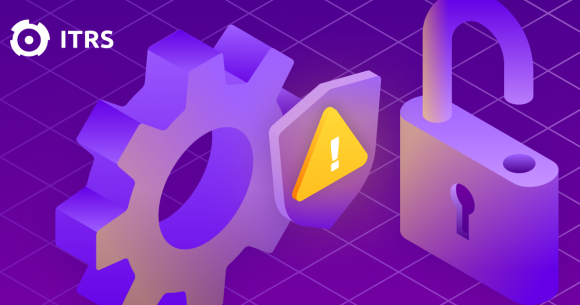Is your website strategy ready for Black Friday?
With the peaks and troughs of an uncertain shopping season, you need to ensure that your business is up to date with the latest, most secure monitoring tools to ensure your website performance this busy holiday shopping season.
In 2021 on Black Friday, consumers spent $109.8 billion online, up 11.9% compared to 2020. Shoppers spent another $10.7 billion on Cyber Monday, 1.4% down from $10.8 billion in 2020.
This year may or may not be marked by the type of unrestrained enthusiasm typically seen by retailers in the past. That may be due to inflation, ongoing supply chain issues and other factors. The picture is mixed. Some retailers are expecting a less-than-merry ending to last-quarter profit taking while others anticipate gut-busting profits at year end. Due to this uncertainty, retailers are starting their promotions much earlier this year.
So, what does this all mean to ecommerce retailers? With the peaks and troughs of an uncertain season, you need to ensure that your business is up to date with the latest, most secure monitoring tools to ensure your website performance this busy holiday shopping season. These are some things you should monitor closely.
Double-check your DNS, SSL certificates
Some business owners tend not to think regularly about their DNS records and SSL certificates, let alone right before big shopping days like Black Friday and Cyber Monday. But they are very important for protecting ecommerce sites - failing to do so could affect your bottom line dearly. Peak holiday shopping season is no time to find out that your certificates are expired, outdated, or have been compromised and made vulnerable to attacks.
SSL certificates work by ensuring that data transferred between users and websites remains encrypted and is nearly impossible to read. Why does your ecommerce site need an SSL certificate?
SSL certificates help secure sensitive user information:
• Login credentials
• Credit card transactions
• Bank account information
• Personally identifiable information- such as names, address, date of birth
• Legal documents
• Medical records
• Other proprietary information.
If your DNS suffers from downtime or an error, your users can’t access your website or online services. If your SSL certificate expires or, worse, gets hijacked, your visitors’ browsers will block and warn them that the page is not secure. Guess what happens next? When your customers can’t access your ecommerce site, and do not see that your site URL starts with “HTTPS”, they could lose consumer trust and confidence that your site is secure. That could result in lost sales.
How to monitor your DNS and SSL certificates
Monitor your systems early and often: Website monitoring is extremely useful in identifying bottlenecks and potential vulnerabilities in your systems before they affect your end users. Monitoring may identify certain patterns signifying that your site is less than up to the task of handling the massive traffic expected during Black Friday and Cyber Monday.
Uptrends tracks outages and uptime from 230 global checkpoints. This is incredibly valuable in identifying parts of the world where you may be targeting customers for better sales performance but are encountering bottlenecks preventing optimal customer outreach and service.
Verify transactions and API interactions with Web Application Monitoring and Multi-Step API Monitoring. You’ll gain great insight enabling your team to address potential issues before they flow downstream to your end-user base. It is also a good idea to refrain from pushing untested updates to your website during periods of high traffic if possible.
Uptrends Website Performance Monitoring checks your e-commerce site 24/7, alerting you at the first sign of sudden, unexpected drops in performance. This gives your team ample time to push out a solution as quickly as possible.
Use content checks
Content checks are the most valuable tools at your disposal, making all the difference in a transaction. Generally, the purpose of content checks is to verify that the previously executed action — clicking a product link on an ecommerce site, logging in/out, navigating to a page — completed successfully.
Transaction monitors run using a script, so adding content verification is invaluable to ensure the transaction runs smoothly and provides you with accurate information regarding your website. Because a content check in your transaction script waits for the indicated content to load, you have two added benefits — knowing for sure that the navigation ended on the correct page and that the page loaded correctly and fully.
Have a plan for a day when everything does go wrong
Seems to go without saying, but the relatively simple process of proactive planning is sometimes put on the back burner by many organizations. Businesses are caught off-guard due to lack of proper training, slow implementation of software patches, or not using the right combination of monitoring tools.
The result could be lost revenue due to customers jumping ship to another vendor. These are a few suggestions for making a disaster recovery plan to avoid that scenario.
• Be on speaking terms with your data centre contact Identify a go-to person for troubleshooting. The last thing you need is to have your data centre perform maintenance during a critical time, or experience downtime because they haven’t prepared their systems for the massive swarms of traffic. Make a trusted point of contact in case the proverbial stuff hits the fan.
Back up, back up, and back up some more
Keeping your data in one central location without redundant back-up options is a disaster waiting to happen. A power surge, heavy traffic, inclement weather, or a DDoS can take out your e-commerce website. Keep backups of your critical website files and databases and set up multiple web servers in locations closest to your target market.
Analyse your third-party scripts
A lot of websites rely on third-party scripts and content to track analytics, embed social media tools, and other functions. These third-party elements require extra calls to external servers, which may slow down your webpage’s performance. We recommend that you analyse your third-party script’s performance and make sure they are fully optimized and worth using.
Don’t forget; these script providers might also be experiencing heavy traffic and other performance altering events caused by Black Friday and Cyber Monday that could affect you!
Learn more about how Uptrends monitoring solutions can keep your ecommerce business running smoothly this holiday season by clicking below.
Sign up for a free 30-day trial today!
This blog is also available in its entirety here.




